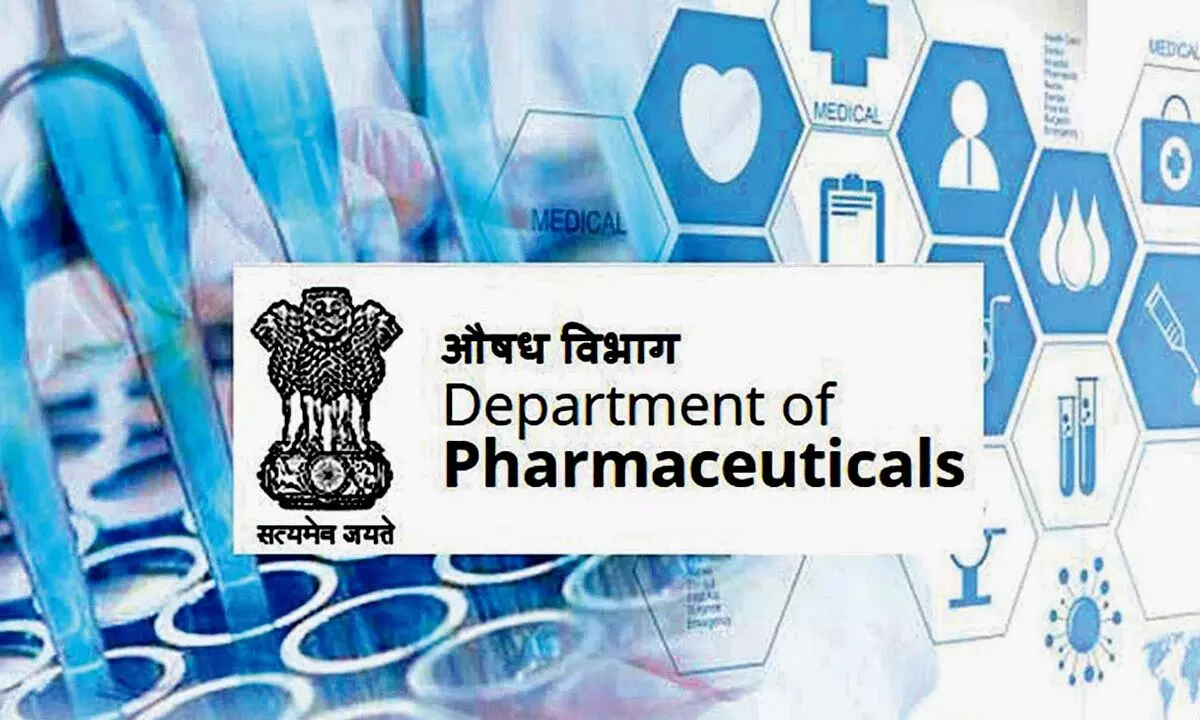Under-utilisation of funds by Dept of Pharma stand exposed
Parliamentary panel’s concerns are genuine and need to be set right pronto
image for illustrative purpose

Obviously, the panel’s concern over the under-utilization of funds is genuine as this will adversely affect implementation of various central schemes of the department, which are of paramount importance for the people and speaks poorly about the functioning of the department
Sending across a clear message to the lethargic attitude of officials from the Department of Pharmaceuticals (DoP), a Parliamentary panel, headed by Shashi Tharoor, has expressed its displeasure over the large under-utilisation of allocated funds by the DoP, especially the tardy progress in implementation of the three Production Linked Incentive (PLI) schemes in 2022-23.The Department Related Standing Committee on the Union Ministry of Chemicals & Fertilisers, has, in its latest report, noted that there has been a recurring under-utilization of allocated funds by DoP in the last three years.
During financial years 2020-21, 2021-22 and 2022-23, out of the allocated funds at the Revised Estimate (RE) stage of Rs. 470.41 crore, Rs. 823.11 crore and Rs. 2268.54 crore, respectively, the department utilised only Rs. 456.16 crore (96.97%), Rs. 774.94 crore (94.14%) and Rs. 843.78 crore (37.19%), respectively.
The Parliamentary panel, which looked into the budget allocation for the DoP and its utilization, was particularly concerned at the slow progress in implementation of the three PLI schemes in 2022-23 as the department utilized only 28.31% of the allocation of Rs. 1663.20 crore (as of February 20).
Obviously, the panel’s concern over the under-utilization of funds is genuine as this will adversely affect implementation of various central schemes of the department, which are of paramount importance for the people and speaks poorly about the functioning of the department. The central government announced the PLI scheme in 2021 to make the country self-reliant in APIs and drug intermediates. For this purpose, DoP is implementing three schemes - the PLI Scheme for promotion of domestic manufacturing of critical Key Starting Materials (KSMs)/Drug Intermediates and APIs in India with a financial outlay of Rs 6,490 crore; PLI Scheme for pharmaceuticals with a financial outlay of Rs 15,000 crore; and the Scheme for Promotion of bulk drug parks with a financial outlay of Rs 3,000 crore.
The Centre approved the PLI Scheme for pharmaceutical industry for the financial period of 2020-21 to 2028-29. The major aim is to create an environment that is favourable for domestic API manufacturers. This scheme is expected to provide large-scale employment, direct and indirect, and provide a wide spectrum of medicines at an affordable price. The PLI scheme provides an incentive on the basis of the sale by select manufacturers who cover all 53 pre-mentioned categories of API. Some of the API categories include Cefixime, Amoxicillin, Cephalexin, Sulbactam, Metformin and Gabapentin. In such a background, proper implementation of the scheme remains crucial.
Results of under-utilisation of allocated funds are there for everyone to see. The DoP projected a budget allocation of Rs. 5,728.57 crore for its various schemes and programmes and other activities during the year 2023-24, but the Union Finance Ministry has reduced the same and has allocated only Rs. 3,160.06 crore. Similarly, during 2022-23, the proposed allocation of Rs. 10,383.25 crore was reduced to Rs. 2,244.15 crore. The DoP, however, is satisfied with an overall increase of 40.84 % in gross budget allocations in 2023-24 as compared to 2022-23 except that in two of its schemes, National Institute of Pharmaceutical Education & Research (NIPER) and the PLI Scheme for Pharmaceuticals (PLI-Pharmaceuticals) in which the proposed allocation has been drastically reduced. Under the NIPER scheme, against the projected allocation of Rs. 1286 crore, Rs. 500 crore and Rs. 50 crore have been sanctioned for NIPERs. As regards the PLI-Pharmaceuticals scheme, against the proposed budget outlay of Rs. 2,203 crore which was required to provide incentives to applicants, only Rs. 1,000 crore has been sanctioned.
Now, as the Tharoor panel in its 42nd report on the Demand for Grants 2023-24 for the department has rightly recommended, the DoP should be more realistic in projecting its estimates for better utilisation of funds. There is a definite need to develop an effective monitoring mechanism to constantly review the progress of the ongoing projects in the pharmaceutical sector to ensure that there is no let-up in fulfillment of the core objectives of the schemes.
(The author is freelance
journalist with varied experience
in different fields)

